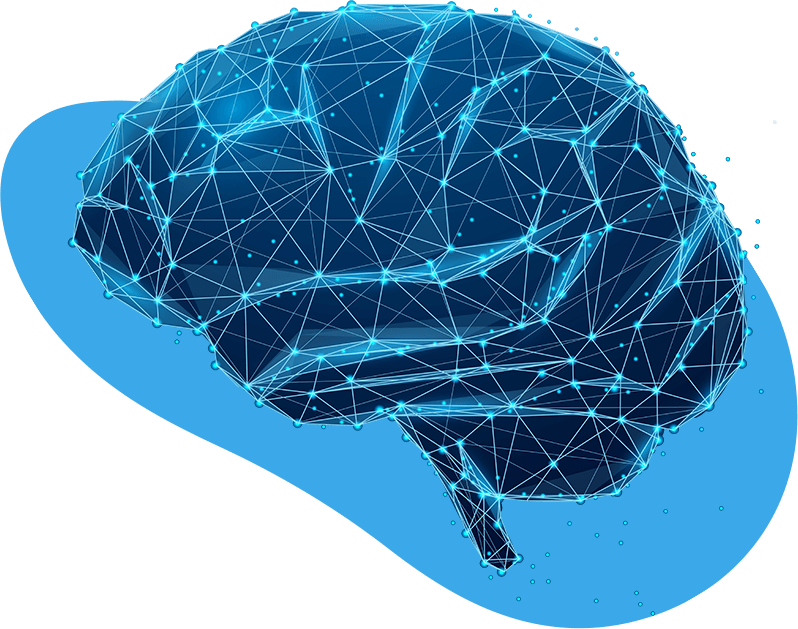The Risks of AI-Generated Content

It’s no secret that there are positives to AI-generated content. It accelerates certain content development processes. It also facilitates brainstorming. And it expedites the production of FAQs based on information you’ve already written. AI is poised to transform the efficiency of various content development workflows.
But for all the good, there are risks. Plenty of them!
And in the rush to take advantage of all the positives of AI content, it can be easy to overlook those risks. In Jurassic Park, the ever-cynical Ian Malcolm says this of the entire project: “Your scientists were so preoccupied with whether they could, they didn’t stop to think if they should.”
This, in some ways, sums up the current state of affairs when it comes to AI-generated content.
AI shows much promise. But there are serious risks associated with its use that cannot be overlooked.
Risk #1: Brand Mediocrity
…One of the biggest risks [of AI-generated content] is that you’re losing authenticity in your content. And I think it’s going to end up being a bit of a turnoff because part of what we crave in the marketing space is connection and authenticity, and it’s hard to do that with ChatGPT.
Your marketing team, on the other hand, can provide deep insights found nowhere else. You can insert your personality, your knowledge, your wit, your experience, and your creativity.
AI can’t produce anything new (at least not yet). If you want to gain organic traction in Google, establish authority, build backlinks, and be recognized as an authority, be better than what’s already out there.
Risk #2: Poor User Experience
Risk #3: No Copyright Protection
Right now, it’s sort of the Wild West and copyright law hasn’t really caught up to the rate at which the technology is advancing.
As the law firm Davis and Gilbert notes, “The U.S. Copyright Office has taken the position that AI-generated works generally do not qualify for copyright protection and cannot be registered because there is no ‘human authorship’ involved.”
In other words, content produced by AI tools without additional human input cannot be copyrighted. If you crank out (copy & paste) 10 blog posts using solely AI, there’s nothing to stop someone else from copying those blog posts and using them for their own benefit.
Note: The U.S. Copyright Office states that whoever owns the copyright from AI-generated content can pass the copyright down to you. But you’d need to check the terms, conditions, and fine print of the generative AI tool you’re using to confirm if this is applicable to your situation.
What about content that is partially written by humans and partially by AI? That’s where things get blurry. Currently, the U.S. Copyright Office will consider the degree of human authorship when determining whether to grant a copyright.
If you use an AI tool to write 50% of a blog post, article, or ebook, the Copyright Office may or may not give you ownership of it.
Waldbuesser notes:
…technically, under ChatGPT’s terms of service, you own the copyright to whatever is created. However, according to the copyright office and the government, and the laws that are in place, you can only own something that is human-generated. So, to get copyright protection, to get it registered with a copyright office, it has to be human-generated. Now, where the gray area is coming into place is when someone uses ChatGPT and then updates it with their own spin.
Ryan M. Martin, associate attorney of the law firm Loeb & Loeb LLP, similarly points out:
The most notable and immediate risk [of AI-generated content] falls under copyright. The open copyright issues are currently being litigated in several cases. Most consequentially to an end user, if a court were to find that the training or use of the tool involves the unauthorized copying or creation of derivative works, and that copying or creation is not protected by a fair use defense, there would be a significant litigation risk against the tools and end users.
Martin continues, “There is no shortage of potential claimants whose works were used in the training corpus of materials for AI tools who could sue seeking statutory damages up to $150,000 for willful infringement, per violation.
“Most tools do not offer meaningful protection for their end users, meaning end users – like agencies and advertisers – could be left having to defend potential lawsuits.”
Risk #4: False Information
[AI has] no critical thinking skills. Because of its fluency and proficiency, it tricks people into thinking that it’s intelligent, but it is “artificial” intelligence for a reason. Not actually intelligent enough to make critical decisions about the sources that it’s using or where it’s pulling from. It’s just trying to generate a satisfactory answer.
And what happens when AI eventually trains on other AI-generated content? A group of researchers in the UK and Canada found that AI that trains on AI-based content produces defective results: “We find that use of model-generated content in training causes irreversible defects in the resulting models.”
This can be dangerous, especially if you use AI to write about sensitive topics like health or finance or law. People make significant decisions based on what they read on the internet. If you publish something that’s not true, you run the risk of misleading people in massive ways.
Not only is this perilous for individuals, it’s dangerous for your brand as well.
If you’re going to use AI-generated content in some manner, you should, at a minimum, fact-check it. Just because AI produced it, doesn’t mean it’s true.
A Content Strategy with Teeth!
Learn how to develop a powerful content strategy that beats AI-generated content and delivers greater traffic and leads. Read the PostRisk #5: Biased Content
Risk #6: SEO Risk
Risk #7: Branding Risk
Staying Up-to-Date
Certainly keeping an eye on ongoing litigation, talking to your legal teams, and having regular conversations with your stakeholders who are monitoring the technological and legal development. We are certainly in early days of this technology, but it is here to stay. Companies will need to stay on top of the legal landscape in order to continually balance the risks against the goals and benefits of using the technology. The lawyers at Loeb & Loeb LLP are constantly monitoring the landscape and speaking and publishing, so subscribe to our newsletters and blogs!
In addition, you’d be wise to monitor the U.S. Copyright Office’s “Copyright and Artificial Intelligence” page. This is a good resource of information with new, related announcements, as well as links to events and resources.
